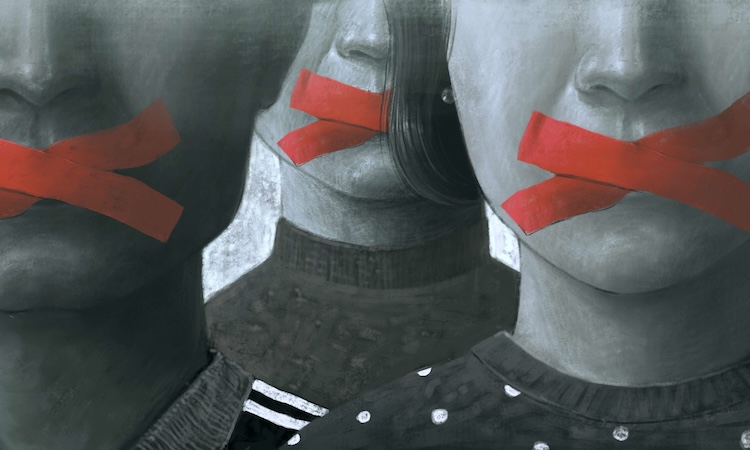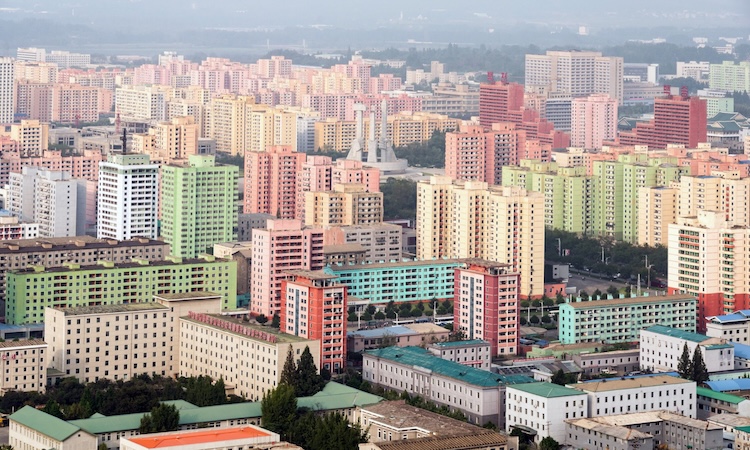On 25 March, the Coronavirus Act 2020 received royal assent after travelling through parliament at lightning speed, “to make provision in connection with coronavirus; and for connected purposes”.
These bolted-on ‘connected purposes’ include a wide range of measures, many of which have little or nothing to do with navigating the health emergency, as becomes apparent when the act is studied in detail.
‘National security’ and surveillance
Under the guise of the vague ‘national security’ catch-all, powers of surveillance and detention have been greatly increased through the bill.
Any person considered ‘potentially infectious’ by a police constable or immigration officer – that is, anyone who “is, or may be, infected or contaminated with coronavirus” or has “been in an infected area within the 14 days preceding that time” (in practice, anyone at all) – may be directed or removed to “a place suitable for screening and assessment”, where they may be held for up to 48 hours, with failure to comply considered a criminal offence.
The arresting officer need only “consult a public health officer to the extent that it is practicable to do so”. Since the current lockdown measures make much of life highly impracticable, the implication is that, in practice, the arresting officer need not consult anybody before using these powers to detain an individual.
The act further states that the unfortunate soul so captured may then be removed to another place and held for up to 24 hours more for further screening and testing by a public health officer.
It doesn’t end there, either. Once assessed, regardless of whether the captive has tested positive for the coronavirus or if the test was inconclusive, the officer may place restrictions upon that person’s “movements or travel … activities … [and] contact with other persons”.
This is, of course, assuming the person has not already been ordered “to remain at a specified place”, potentially in isolation, for up to 14 days, upon the expiry of which period he can potentially be forced to go through the whole nightmarish rigmarole again.
To ice this dystopian cake, the provision applies not only to adults but to children as well. (Coronavirus Act 2020, schedule 21)
The act also grants power for the investigatory powers commissioner (IPC), to appoint “temporary” judicial commissioners for a term of up to 12 months, willy nilly. Whereas previously a judicial commissioner had to be appointed by the prime minister, backed up by the joint recommendation from the lord chancellor, the lord chief justice of England and Wales, the lord president of the court of session, the lord chief justice of northern Ireland and the home secretary, now the IPC is required only to notify all the above, giving the IPC a completely free hand in creating judicial commissioners. (Coronavirus Act 2020, pt1 s22)
Hand in hand with the above provision, the Investigatory Powers Act 2016 has been weakened, extending the duration of an urgent surveillance warrant from three to twelve working days. (Coronavirus Act 2020, pt1 s23)
It goes on. Fingerprints and DNA samples, not already currently allowed to be indefinitely kept, may now be retained – “for the purposes of national security” of course! – for up to 12 months.
How all this is supposed to relate to the control of a viral pandemic is unclear. (Coronavirus Act 2020, pt1 s24)
Curtailing rights
Cognisant of the fact that the measures taken, combined with the massive economic devastation caused by the latest crisis of overproduction, will likely lead to social unrest, the bill makes provision to strip away yet more of what remains of our freedom of expression.
In schedule 22 we learn that the secretary of state may “issue a direction prohibiting, or imposing requirements or restrictions in relation to, the holding of an event or gathering”. This covers not only outdoor spaces but any “entry into, departure from, or location of persons in, premises” in the country. Those caught in violation are subject to summary conviction and a fine.
Any form of protest against the Act, or any other pressing social issue, is thus rendered illegal. (Coronavirus Act 2020, sch22)
In short, whilst we have no truck with the conspiracy theorists who would have us believe that the whole covid crisis has been artificially manufactured in order to usher in martial law, it is abundantly clear that the government has taken the opportunity presented to pass a host of measures that are very little to with managing the health crisis and everything to do with the ruling class equipping itself to deal with the social unrest generated by the economic crash.
The current spontaneous outbursts of popular rage over racism and police violence are an early foretaste of the fire to come.
Medical oversight: mental and physical health
A further concerning aspect of the Coronavirus Act is that under schedule 1 it empowers local registrars to “register a person as a registered nurse, midwife or nursing associate, or the persons comprising a specified group of persons as registered nurses, midwives or nursing associates” should the registrar consider “that the person is … fit, proper and suitably experienced”.
With the potential influx of ill-trained healthcare workers thus ensuing, provision has been made to “provide indemnity coverage for clinical negligence of healthcare workers and others carrying out NHS and Health and Social Care (HSC) activities connected to care, treatment or diagnostic service”. This indemnity clause is manna from heaven for those who seek to further erode quality of care in pursuit of profit. (Coronavirus Act 2020, sch1 pt1 s14)
Another attack on social care provision comes with Schedule 12, which suspends local authorities’ obligations under the Care Act 2014. Under the Care Act, local authorities were duty bound to assess the needs of adults, carers and disabled children moving into adult care. Now, the local authority has full discretion over whether or not to make such an assessment. (Coronavirus Act 2020, sch12; Care Act 2014, pt1 s9)
The Care Act further stipulated that the authorities must meet any adult’s care and support needs following assessment. The Coronavirus Act now supersedes this, stating instead that such unmet needs must be met only if “the authority considers that it is necessary to meet those needs for the purpose of avoiding a breach of the adult’s Convention rights”, ie those detailed in Human Rights Act 1998. (Care Act 2014, pt1 s18; Coronavirus Act 2020, sch12)
Since no universal right to social care exists under the convention, local authorities are to all intents and purposes unaccountable. To completely absolve the local authorities of responsibility for the task of caring for vulnerable people in need, the act suspends their duty to produce new or to review pre-existing care and support plans.
Key aspects of the Mental Health Act have also been relaxed. Whilst previously mental health professionals were required to be supported by two doctors in any decision to forcibly detain, hospitalise and medicate a person, now they need a recommendation from only one. Thus the act of sectioning a person (ie, forcibly detaining someone on mental health grounds) has been made significantly easier. (Coronavirus Act 2020, sch8-10)
‘Financial assistance for industry’, aka bail-outs
Won’t you spare a thought for those poor industrialists and their billions in these trying times? No? Of course you won’t, dear reader, but, true to form, our MPs have their backs.
The huge so-called ‘financial assistance measures’, more accurately termed ‘bail-outs’, notorious and massively unpopular following the last capitalist crisis in 2008, have been given the green light by the act – provided, of course, that they can be classified as “coronavirus-related”, for which the bar is set low indeed.
The Industrial Development Act, enhanced by the Enterprise Act 2016, already allows the “secretary of state … with the consent of the Treasury, [to] provide financial assistance” to the tune of £12bn, increasing to £16bn under the Enterprise Act, to various industrial projects, excluding “acquisition or assistance of banks or insurance companies” (which, in the final analysis, own and control the state and will do as they please), provided it such a bail-out is “likely to benefit the economy of the United Kingdom … and … is in the national interest”. (Industrial Development Act 1982, pt3 s8).
Under the new act, pay-outs to the already supremely wealthy kings of industry will not count towards the £12bn aggregate limit. (Coronavirus Act 2020, pt1 s75)
The clout of the construction industry
While the rest of us are living a curtailed existence under lockdown, it has largely been business as usual for the almighty construction industry, which has been flexing its muscles in order to dodge lockdown quarantine requirements and carry on making a mint while wreaking havoc on our beautiful countryside.
Another measure smuggled in with the Coronavirus Act negates the role of the local community in planning decisions. Whereas, under more normal circumstances, planning decisions are supposed to be made in meetings that are open to the public, in which its voice can supposedly be represented, if only nominally, either in person or through the mouths of elected councillors, section 78 of the act does away with that.
County, district, parish, London borough councils and the rest all now have the power to “make provision relating to requirements to hold local authority meetings … the places at which local authority meetings are to be held … public admission and access to local authority meetings” and more. (Coronavirus Act 2020, pt1 s78)
So for example the London borough of Croydon has replaced speaking rights with written statements, Islington has elected not to publicise meetings and Enfield recently closed a meeting on a major planning decision to the public. (Press release: Planning in the Covid era, CPRE London, Just Space, Friends of the Earth and London Forum of Amenity and Civic Societies, April 2020)
Manchester city council has taken things one step further and declared that all decisions will be made in closed meetings by a panel of just three people: the council chief executive, the chair of the planning committee and the deputy chair. (Trio take over Manchester planning decisions by Chloé Vaughan and Jessica Middleton-Pugh, North West Place, 27 March 2020)
Such changes to existing planning law mean that unpopular (but very lucrative) projects can be given the go-ahead with minimal resistance from the local population. The new law has given the green light to developers across the country to push through all kinds of developments that are unpopular and have nothing to do with healthcare.
If the act was specific to creating pop-up hospitals, for example, it could be argued that it’s proportionate and related. But as it stands, that’s not the case at all, and developers are well aware of that – hence them all rushing to push through planning consents that have been stalling as a result of local objections.
Is it wrong to take any steps that curtail people’s freedom of movement?
As communists, we cannot be opposed to the implementation of measures that really are aimed at stopping the spread of a particularly threatening disease. Anyone arguing that the lives of tens of thousands of grandparents and vulnerable people is a price worth paying just so everyone else can ‘keep their liberty’ for the duration of the pandemic is promoting a Malthusian, anti-worker line.
Those who argue that quarantine measures ‘don’t work’ in stopping the spread of disease, meanwhile, clearly have no understanding of biological reality.
What we as socialists object to is the fact that while the government belatedly and half-heartedly announced a lockdown (waiting long enough to ensure a huge and entirely avoidable death toll in Britain), none of the other measures that have proven to be effective in tackling Covid-19 have been taken.
These are the measures that the World Health Organisation (WHO) has been urging governments to take from the beginning, and which the countries that have so far managed to avoid significant outbreaks implemented months ago – mass testing, quarantining of all those testing positive for the virus, and tracing and isolating those they have recently been in contact with.
If such measures had been properly put in place from the start, a national lockdown may never have been necessary at all. With testing and tracing still not fit for purpose, there is every risk of both a second deadly spike in infections and deaths as the lockdown is eased, and of the need for a second lockdown, with all its social and economic ill-effects, later in the year.
We are in favour of doing everything necessary and possible to protect lives, including providing economic support to all those who have been asked to stay at home.
What we cannot support, however, is the ruling class taking the opportunity presented by the crisis to pass measures that have very little to do with protecting lives and everything to do with maximising profits.
The measures outlined above are by no means an exhaustive list of the powers the ruling class has given itself under the guise of ‘tackling the health emergency’. Other measures include empowering government to postpone elections and to close borders at will.
The official duration of what is being sold as ‘temporary’ legislation is upwards of two years, subject to parliamentary review every six months.
Whether the legislation is really repealed when the health emergency ends will most likely depend on how much pressure the government feels itself under to do so.















